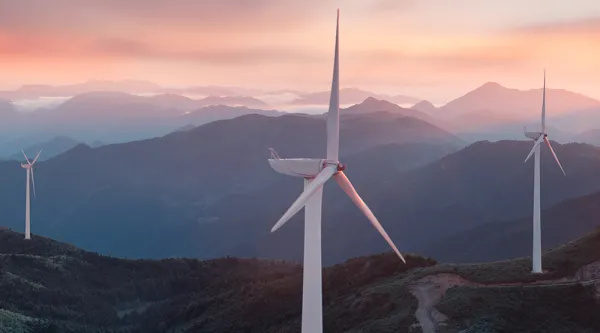As climate change accelerates, it demands faster and stronger action at all levels: from individuals, governments and businesses. The stakes are high, and increasingly include goals to bolster energy security. The global energy crisis centered in Europe is causing nations to re-evaluate their energy sovereignty postures. These drivers are leading some communities to the concept of energy sobriety, or energy restraint.
While most laws, regulations and policies focus on energy efficiency, energy sobriety aims to reduce consumption by changing behaviors, including avoiding energy consumption altogether. Basically, energy sobriety is about managing consumption to what is really needed.
“Reducing energy demand, itself related to the demand for goods and services, is the key factor in achieving carbon neutrality.”
— French Environment and Energy Management Agency (ADEME) Transitions 2050
We invited energy experts Meryll Pasquet, Alexandre Malric and Marine Wurtz of CGI Business Consulting in France to share their insights on the topic of energy sobriety.
What factors are driving the energy sobriety movement?
Meryll: The consequences of even +1.1° C in global warming—the situation we are in today—already are dramatic. There are about 23 million climate refugees who are migrating away from their own countries to avoid coastal floods, or to flee droughts and heat waves. At +1.5° C, the Amazon could become a savannah. It is urgent to act, because from the moment we start to reduce our greenhouse gas (GHG) emissions, there still will be a period of inertia before temperatures start to fall.
Alexandre: According to the IPCC report, Climate Change 2022 - Impacts, Adaptation, and Vulnerability, 3 billion people could be affected by climate change by 2050. That's a third of humanity. It is huge. This is an urgent matter that we must address that requires both technology changes and behavior changes, such as energy sobriety.
Additionally, today there is no energy source for which France and most European countries are totally autonomous in terms of production. Whether it is oil, gas, uranium, photovoltaic panels, etc., we are dependent on other countries in a globalized economy.
What kinds of actions can be taken?
Meryll: We can all act as individuals. For example, in France, the average person’s carbon footprint is 10 tons of GHG emissions per year. We need to reduce this to 2 tons. Calculating one's carbon footprint is a good exercise to realize what actions to take at the individual level. But individual actions are not enough, and pale in comparison to the amount of energy that industry and governments use to operate. We need scale in order to succeed.
So, organizations also must transform to reduce their consumption. This requires a review of their dependence on fossil fuels and their ability to track, trace and report on emissions data within their own organizations and from their suppliers. With insights from this data, organizations have the information they need to optimize processes to consume less energy. This can be done through innovation and through educational activities and initiatives for employees and other stakeholders.
Alexandre: Some changes are within our own power, while others depend heavily on political commitments. France was among the first in the world to adopt an energy transition framework with a National Low-Carbon Strategy (Stratégie Nationale Bas-Carbone or SNBC). The SNBC strongly relies on both energy sobriety and low-carbon electricity as key measures. As part of this strategy, France committed to being carbon neutral by 2050.
The European initiative "Fit for 55" voted in 2021 by the European Parliament aims to reduce GHG emissions by 55% by 2030. So, there is no time to lose to meet the dual challenges of low-carbon production and energy sobriety.
What role do energy and utilities companies have in these efforts?
Meryll: Although our electricity is low-carbon in France (due to our nuclear power plants), the use of fossil fuels still represents almost two-thirds of our consumption. When you break that down, oil accounts for 40% and natural gas for 20%. We will have to manage to find ways to do without it. Vehicle electrification can help reduce gas consumption, but it will never be the entire answer as certain industries cannot be electrified.
I’ve been working for several years with clients in the gas value chain. The entire gas sector has begun its transformation, notably through the development of new fuels such as hydrogen or biomethane, which can reduce GHG by 90% compared to fossil fuels.
Alexandre: You can’t do business if there is no planet. This is how core sustainability is to remaining competitive.
According to the Futures 2050 report from RTE, Europe’s largest transmission systems operator, between 750 and 1,000 billion euros need to be invested for this profound transformation. It must be carried out on all fronts, including the production side, with the various levers of solar, wind, nuclear, geothermal, biofuels and blue and green hydrogen.
Energy companies must prepare themselves to shift from investments in production and exploration of traditional energy such as fossil fuels, toward cleaner sources. They need to scale up clean and renewable energy sources to meet societal demands while making it affordable. They also need to invest in electrification and new ways to use energy.
Technology can help energy companies develop, integrate and manage the new energy mix. Utilities, for example, now need to manage traditional owned assets, non-utility assets and renewable assets. They need to manage the expectations of prosumers and accommodate the growing number of market participants. All of this requires enterprise-wide data insight into all network assets. A network grid model gives them this insight and helps them orchestrate grid operations as well as better identify carbon optimization opportunities and new capital investments.
Marine: There is a shift to make now, so the energy and utilities sector needs to be aware of all the solutions proposed by the IPCC report, suggesting to shift investments toward low-emissions electrification among other solutions. The report states that in 2030, in scenarios limiting warming to 1.5°C with no or limited overshoot, net CO2 and GHG emissions fall by 35-51% and 38-52% respectively.
Oil & gas companies are slowly turning their fields into CO2 storage, and this should be accelerated. Other ways to put captured CO2 to productive use already include the practice of enhanced oil recovery that injects CO2 into existing oil fields.
Energy companies also could consider building new strategic plans including hydrogen, and even natural (geologic) hydrogen, which is at the very early stages of research. It's about exploring hydrogen gas that is found naturally in the ground. We know that we have some reserves, but we don't know the amount. People are currently working in the industry to quantify this.
Can energy sobriety become acceptable and equitable?
Meryll: Energy sobriety has been quantified at minus 90 terawatt-hours, which is quite substantial. This can involve work methods, housing and travel. It requires profound changes in our lifestyles. There are innovations today that allow us to better control, and therefore limit, our energy consumption. But it is true that as soon as there is a feeling of deterioration in the quality of life, it is more difficult for the population to accept this concept.
Alexandre: The energy sobriety needle is politically very fine because we can quickly arrive at actions that are perceived as coercive and undesirable. Examples in France include restricting air travel for short journeys (under 2.5 hours) where there are alternatives by train, and GHG restrictions that effectively will limit the use of gas heating for new homes.
We are on a dire path with climate change. The least-polluting energy is always the one we don't consume. Sustainability does not have to mean higher cost. When done correctly, it is a way to improve efficiency and reduce costs. By not spending to pay for waste, you keep money in your wallet.
If solar energy can only be produced during daylight hours, prices might be higher at certain times of the day. People need to be able to understand these things to make good decisions to reduce consumption and costs.
This also requires the most arbitration and need for equitability. As energy prices rise, they are increasingly difficult to afford. Today, 10% to 15% of our fellow citizens already have difficulty paying their electric bill, and we must not forget them and turn energy into a luxury product.
What other changes are needed?
Alexandre: We need to invest to find the right business models and new ways to produce electricity by starting in an agile manner that allows for adaptation and change. How much investment will it take to reduce the energy bill? What is the ratio between cost and pollution? Can we reduce consumption if our priorities are not the same?
Sobriety is not just about reducing energy consumption. It is a mindset that extends to the consumption of food and goods and their sources, more locally. It also includes the lifecycle of how they are produced, including the use of second-hand products that have less impact on CO2 emissions than throwing away the old to buy the new. It is a mindset for us as consumers, but also in sustainability approaches for how companies work toward social goals.
Working Group II contribution to the Intergovernmental Panel on Climate Change (IPCC) Sixth Assessment Report








